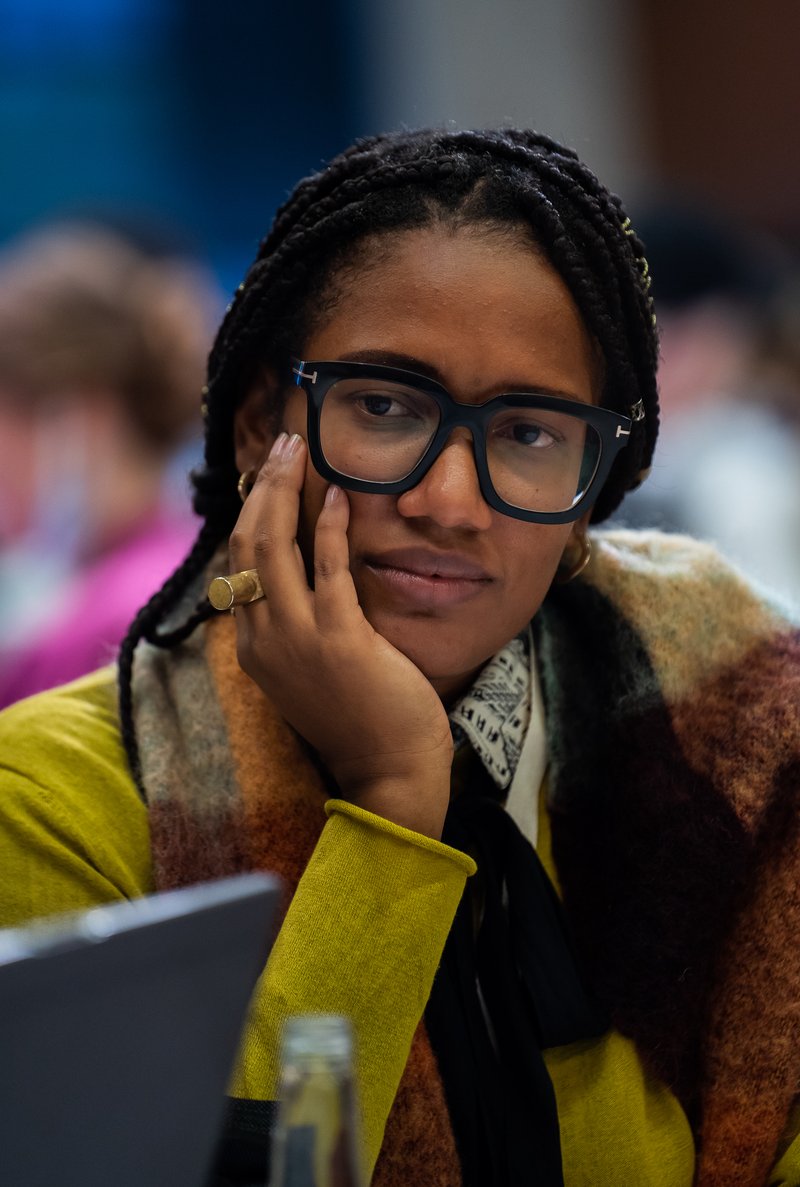Janine Gaëlle Dieudji

In 2021, 50 contemporary art curators, researchers, and museum professionals from 32 different countries were awarded support to attend the CIMAM 2021 Annual Conference, in-person and online.
For the first time, and thanks to the generous support of The Getty Foundation who sponsored the virtual platform, 27 grantees attended the conference online, while 23 attended onsite.
Launched in 2005, CIMAM’s Travel Grant Program is designed to foster cooperation and cultural exchange between contemporary art curators and museum directors in emerging and developing economies and their counterparts in other regions of the world.
This grant was generously funded by Mercedes Vilardell.
Janine Gaëlle Dieudji's Conference Report
As we're moving towards the end of the year, the 53rd edition of the CIMAM Annual Conference entitled “Under Pressure: Museums in Times of Xenophobia and Climate Emergency” was definitely one of my highlights this year.
Beyond the fact that the theme resonated with several ongoing discussions on decolonizing, downsizing, and rethinking the museum of the future in a constantly changing world of global crisis, the choice of the location (Gdansk and Lodz) couldn't be more accurate due to current tense socio-political and geopolitical climate in Poland.
On the first day of the conference, framed under the title "Conflicts, Crises, and the Politics of Growth", I came across the work of Prof. Dipesh Chakrabarty, who uses geobiological concepts to address our relation to the planet. His presentation depicted the globe as moral-political and stated that "the planetary forces reduce us to our creaturely lives" and "the global is about a human-dominant order of life." A specific sentence from his presentation struck me: "The planetary is about habitability." I immediately associated it with the writings of another lecturer I appreciate the work, Prof. Achille Mbembé. According to him as well, the existence itself is more and more combined with the ability to move around, “habiter le monde c’est nécessairement en prendre soin et le partager avec d’autres.” (inhabiting the world is necessarily taking care of it and sharing it with others.). Day one was quite enriching in terms of knowledge and practices exchange during the different presentations, the networking session in the original format of "speed-meeting," and the groundbreaking exhibitions we visited.
On the following days, keynotes such as T.J. Demos' one emphasized the urgent necessity for museums to "recognize the climate emergency by distancing themselves from fossil fuel investment capital" and to attempt "to reconcile in advance a political transformation emancipated from institutional racism, xenophobia targeting minority groups, and growing socioeconomic and political inequality." We've been facing critical times for a few years now.
Between the Covid-19 crisis that clearly shows us that multilateralism only works in times of peace, and social protests around the world that brought special attention to matters such as racism, police brutality, inequality amongst peoples, xenophobia, discrimination in all its forms, and climate emergency, it's becoming crucial to develop and encourage critical thinking. Besides the essential need for viable policy measures, our duty as artists, curators, and museums professionals is to advocate for more inclusive spaces and platforms that create a safe and welcoming environment for all.
The CIMAM's 2021 Annual Conference was an excellent opportunity to meet and connect with colleagues from across the world. I remain grateful to the CIMAM team, the Getty Foundation, the V-A-C Foundation, the Byucksan Foundation, Mercedes Vilardell, the Garage Museum of Contemporary Art, and the Office for Contemporary Art Norway for selecting me and other 49 contemporary art curators and museum professionals, and for awarding us the Travel Grant Program to attend the conference, as we move to "new paths of growth" and "healing the collective unconscious." (CIMAM 2021, Day 1, Perspective 2, Joanna Sokolowska)